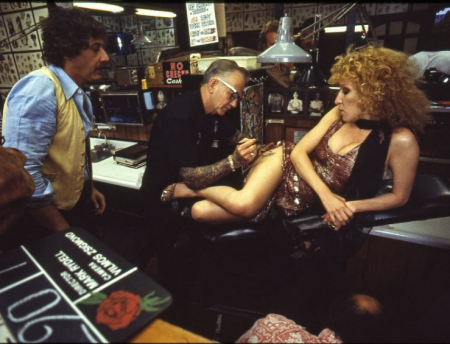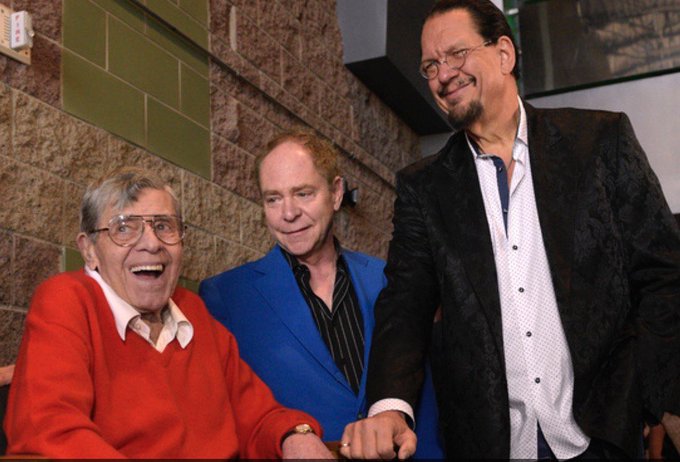Out And About Nashville
40 years later, Bette Midler‘s ‘Rose’ a better rockumentary than character study
RETRO FILM REVIEW: The Rose
July 15, 2017 Joseph Brant
You’re either old enough to have seen this film at least once, or you’re so young that you’ve not ever heard of it. There doesn’t really seem to be an in-between.
Bette Midler is an icon, a gay icon of the highest stature and though she had a moment of breakthrough to the pop culture zeitgeist a year or so ago with a Kardashian Twitter fued(link is external), and despite a coveted ‘Belle of the Ball’ appearance (and win) at this year’s Tony Awards for her universally acclaimed performance in Hello Dolly, she’s not held the American imagination as much as when she first broke through in the 1970s. Or even during her return to form, a film renaissance in the late 1980s.
The Rose takes place over just a few days, following the tour of Mary Rose Foster, who known by all as only ‘Rose’ or ‘The Rose.’ The film’s narrative momentum, the two-hour-long crescendo to its climactic scene, is driven by the run-up to a stadium performance in Rose’s hometown somewhere in Florida. In between, we witness brilliantly photographed performances in (we’re told) New York City and Memphis.
Rose is exhausted, an alcoholic who repeats at least three times that she’s no longer interested in drugs. She pulls a large green liquor bottle from her oversized handbag and tips it back so frequently that, had the film been made today, the internet would give it a name and we’d be overrun with memes. She repeats as well, beginning with the very first scene, that she wants to take a year off after the hometown performance in Florida.
Her manager, played by Alan Bates, refuses to entertain the idea, though we’re never told why. We know the tour is financially lucrative but the narrative suggests it is a bluster of non-stop movement and chaos, that these few days are indicative of the entire experience. Most every film review identifies him as the bad guy, a villain of sorts but, aside from Rose’s obviously erratic nature (which, perhaps my fault, I assumed was an immutable characteristic), he seemed to make the most sense of anyone involved.
Over the course of those few days Rose falls for an AWOL sergeant from the Army named Huston Dyer — did you catch the Ft. Campbell shout-out? — and brings him along for a ride, drops in backstage at a country musician’s show where she’s perfectly humiliated, performs impromptu at a drag show where, and this is sort of interesting, all the queens sing live, she gets lost with Huston and then found, meets up with a female intimate friend (in a scene that’s more fascinating due to the interpretive stretch we’re supposed to take as viewers, that they’re lesbian lovers), loses Huston, finds him, and then loses him again.
At one point he tells a story of spending time alone in Montana, “I didn’t see another soul for six days, ” he said, “felt like I owned the whole thing.” She stops and says to him, “were you really alone for six days?” and we feel for her because, though she longs for that sort of solitude, she claims to want an escape from the pressure of her tour and career, it seems increasingly obvious that she wouldn’t know what to do with herself should she ever carve out a few days alone, much less an entire year.
The Rose aspires to be the sort of film that defined the 1970s: think of Taxi Driver, Dog Day Afternoon, The Godfather, The Deer Hunter, even the original Rocky, and especially Nashville. But it doesn’t quite do it.
It’s based on the life of Janis Joplin, of course. Notoriously, permission to use original source material was not granted the producers of the film—one of whom was Midler’s manager at the time, with whom she ironically had a major falling out post-The Rose—and so the film to some degree struggles in its effort to effectively step aside from that iconic performer’s influence. The Rose takes place in 1969 yet the music is undoubtedly a product of the 1970s. A scene that finds Rose and Huston facing discrimination at a diner (“We don’t serve hippies here”), along with Rose’s wardrobe are the only references to the time period—though an assumption that it’s stage wear is valid.
It’s a film designed for Midler to flourish, to outshine and perhaps even upstage all the others. I fell in love with Bette as a young boy when I saw Ruthless People in 1986 and then it’s follow-up, Outrageous Fortune, in 1987. Back then The Divine Miss M (a moniker she assumed from nearly the beginning of her career in the early 70s) was described as brash and brassy, outspoken, and in those mid-1980s roles she entirely lived up to those adjectives. So with those two films as a starting point, and after decades of reading how The Rose was a great dramatic departure from that personae, it comes as a surprise to see a similar over-the-top performance here.
Don’t get me wrong. It’s still a great film. Long outdated references to rack jobbers unwittingly add to the period piece setting. The musical performances are absolutely top notch. At times the director Mark Rydell allowed a single song performance transition without a scene break to another song, giving the film a documentary quality.
The end requires a stretch of the imagination. It relies on ignorance from the audience regarding the stresses put on a performer, or perhaps drug culture in general. We aren’t left to truly comprehend Rose’s descent over these few days. In the end it feels like a rollercoaster and, as with all coasters, it hits a breakneck pace shortly after it begins, hurls you through the middle, until abruptly, incongruously it just stops.







